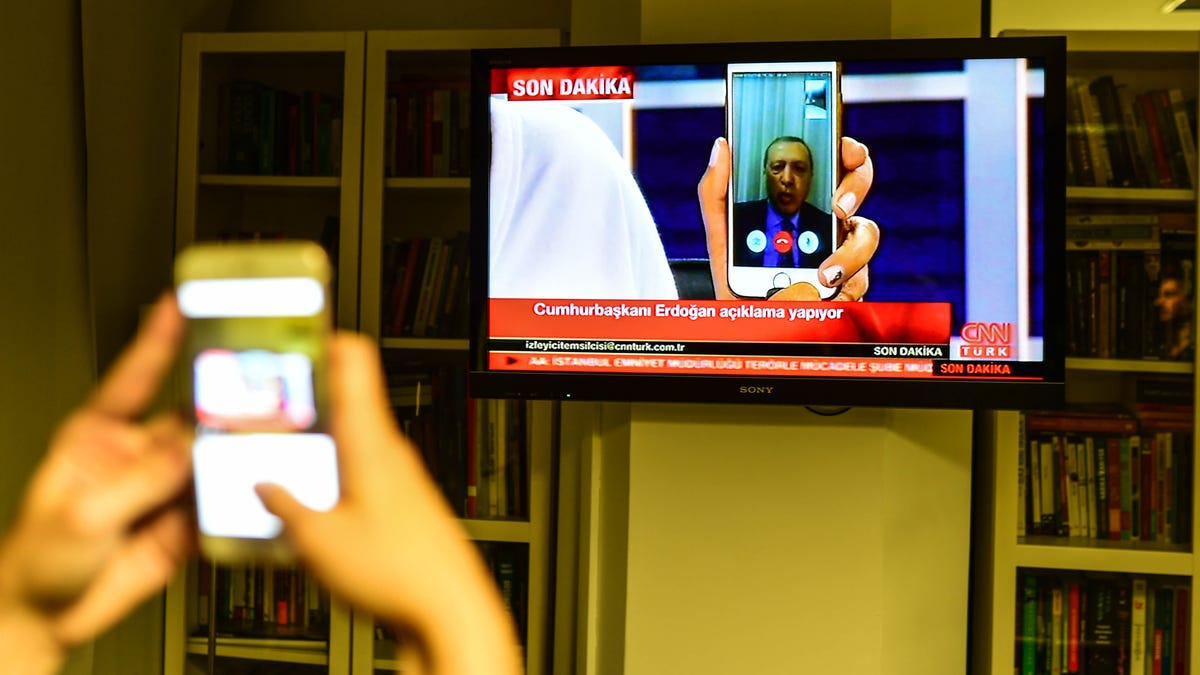The smartphone has become the center of our political lives
A coup attempt in Turkey is the latest example of how internet-connected phones are the tool du jour of politicians and protesters.
If all else fails, grab a smartphone.
When the Turkish military reportedly began shutting down internet services like Facebook and Google during a coup attempt Friday, the country's president, Recep Tayyip Erdoğan, tried a different way to call for help. He held a phone in front of his face and, using Apple's FaceTime video-chat software, gave an interview to a local news station and implored citizens to fill the streets and support the democratically elected government.
"I urge the Turkish people to convene at public squares and airports," Erdoğan said through his iPhone's screen. "There is no power higher than the power of the people. Let them do what they will at public squares and airports."
For billions of people, smartphones have already become the remote controls for our lives. Now they're becoming a tool for politicians and protesters to get their message out too, helping shape key moments in modern history.
Just consider the events of the past few weeks.
When Democrat politicians in Washington, DC, attempted to protest gun legislation on the floor of the House of Representatives one late June day, the cameras installed in the chambers were ordered turned off by the opposition. But thanks to Twitter's Periscope and Facebook Live, the Democrats were able to broadcast their sit-in to the country. Even broadcast news networks began republishing their video.
Two weeks later, a woman named Diamond Reynolds turned to her phone when her fiancé, Philando Castile, was shot four times by a police officer during a traffic stop. "Please don't tell me he's dead," she pleaded into the camera on her phone.
A few days later, protesters were among the first to relay dramatic footage of an attack that killed five Dallas police officers and injured seven more.
In each case, the videos were the central way people learned what happened. But more importantly, their personal nature -- often shot from a phone just inches from a person's face -- made them more human and visceral.
"The images we've seen this week are graphic and heartbreaking," Facebook CEO Mark Zuckerberg wrote in a statement that week. "It reminds us why coming together to build a more open and connected world is so important -- and how far we still have to go."
Turkey may not have its live-streaming moment in quite the same way. Though the country's president was able to broadcast a quick statement to a news outlet, there are reports that internet service has been disrupted amid the fighting.
YouTube said in a statement that its systems appeared to be working properly. But Twitter warned that connections to its service may be being slowed. Facebook Live appears to still be working in the country, according to the company's list of live streams around the world.
Facebook, the US State Department and Turkish authorities didn't immediately respond to requests for comment.


